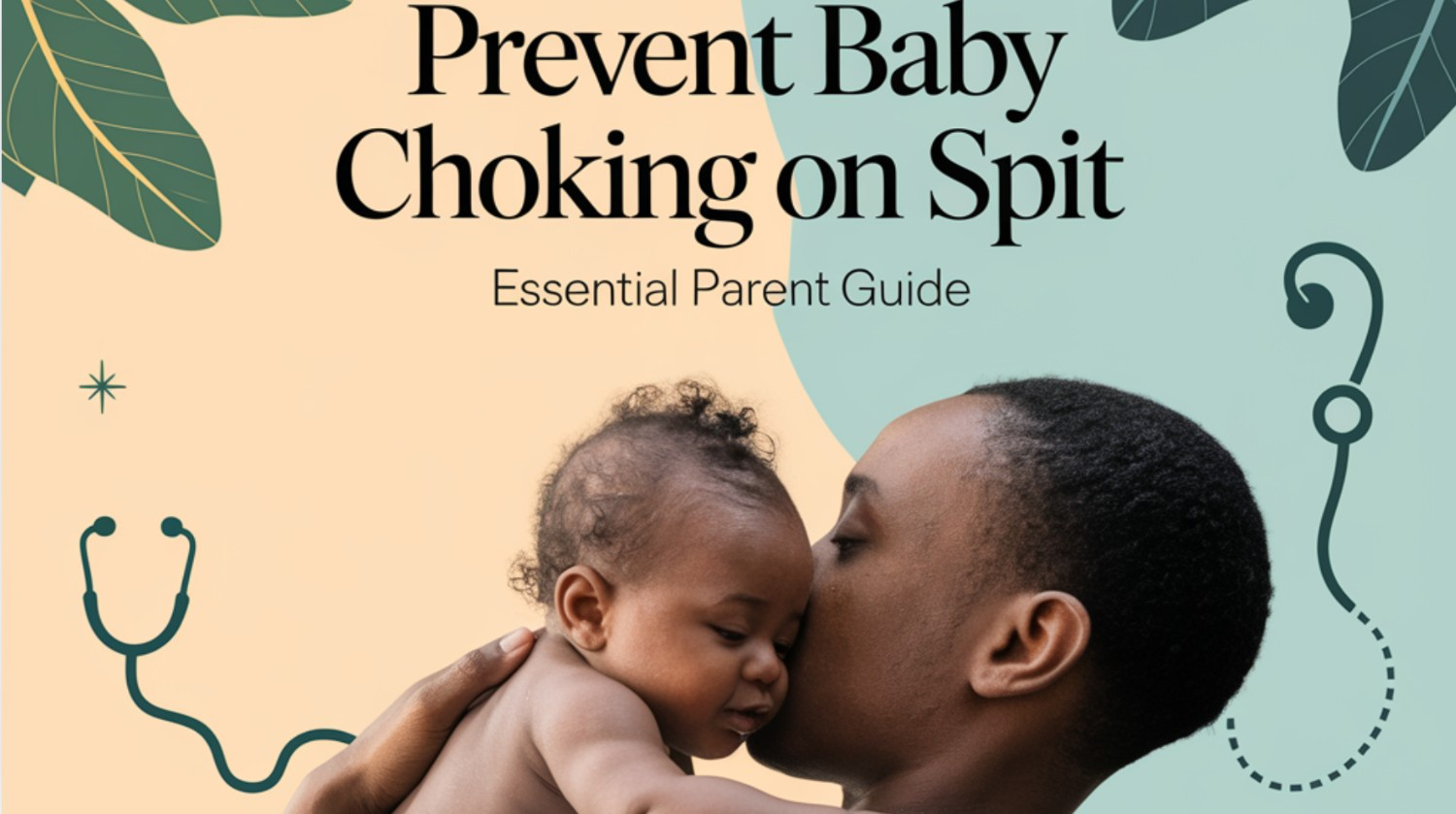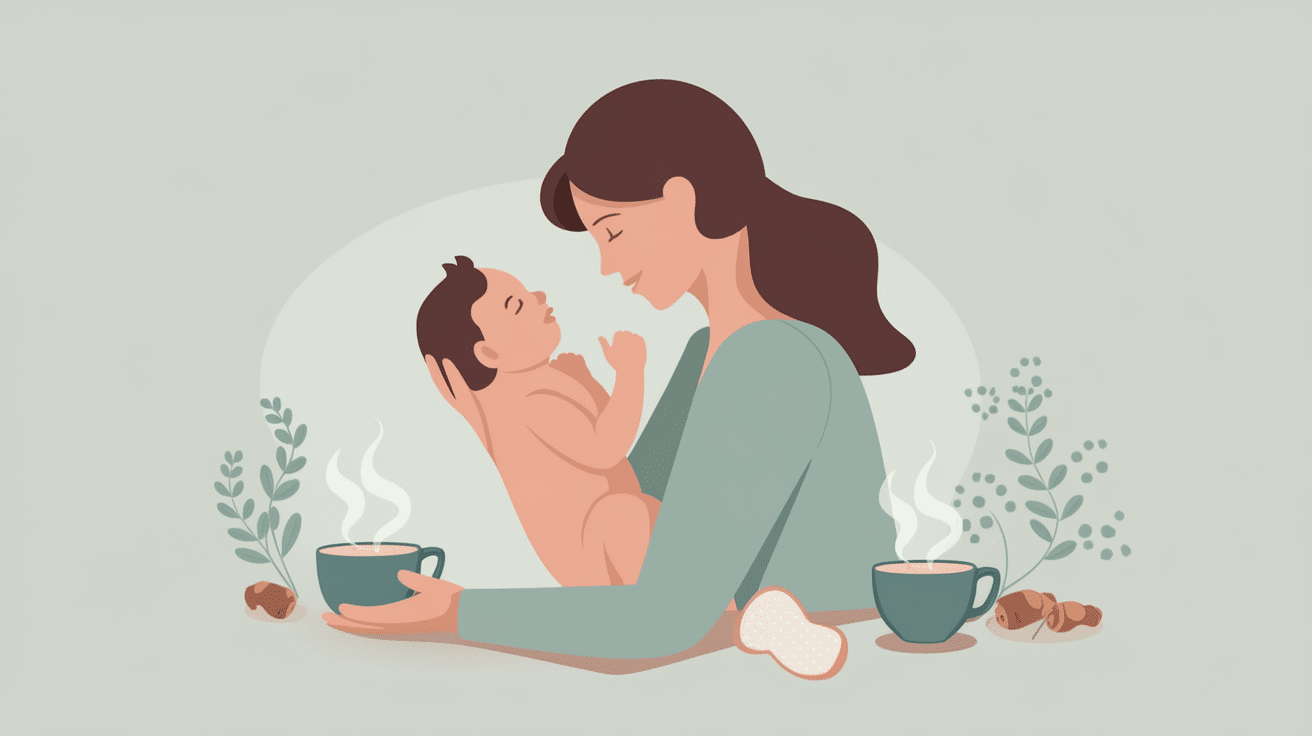
If you’re a new parent, you’ve probably experienced this scenario: You’re dressed in your best outfit, your baby looks adorable, and just as you’re about to take that perfect family photo – splat! Baby spit-up happens, and it happens a lot.
But what exactly is baby spit up? Is it normal? And when should you worry about it?
Don’t worry – we’ve got you covered with everything you need to know about this common (if messy) part of babyhood.
What Does Baby Spitting Up Mean?
Baby spit-up is when a small amount of milk or formula comes back up after feeding. It usually dribbles out of your baby’s mouth, sometimes with a burp.
Think of it this way: your baby’s stomach is tiny – about the size of their fist. Now imagine filling and emptying that tiny container multiple times a day. Some spillover is bound to happen!
Most babies spit up regularly until about 6-12 months of age, when they start sitting up more and their digestive systems mature.
PRO TIP: Keep a spare cloth diaper or burp cloth in every room of your house and in your diaper bag. You’ll thank yourself later when the inevitable spit up happens and you don’t have to run across the house for a cleanup cloth!
Why Do Babies Spit Up?

Ever wondered why your little one seems to spit up so much? Here are the main reasons:
1. Their Digestive System Is Still Learning the Ropes
Your baby’s digestive system is brand new and still figuring things out. The muscle at the entrance to the stomach (called the esophageal sphincter) is still developing. This muscle’s job is to keep food in the stomach, but in babies, it’s not working at full strength yet.
2. Overfeeding Can Lead to Overflow
Babies sometimes eat more than their tiny tummies can handle. Their eyes (and instincts) can be bigger than their stomachs. Did you know? A newborn’s stomach is only about the size of a cherry on day one and grows to the size of an egg by day 10.
3. Air Bubbles Cause Trouble
When babies feed, they often swallow air along with milk. Those air bubbles can send some milk back up when they escape.
Picture this: a bottle of soda with the cap on. Shake it up, and what happens when you open it? That’s similar to what happens with trapped air in your baby’s tummy.
4. Position Matters
How you hold your baby during and after feeding can make a big difference in how much they spits up.
5. Some Babies Have Reflux
Gastroesophageal reflux (GER) happens when stomach contents come back up into the esophagus. It’s common in babies and usually nothing to worry about. However, a more severe form called GERD (Gastroesophageal Reflux Disease) might need medical attention.
When Should You Worry About Spitting Up?

While spit up is usually normal, there are times when it might signal something more serious. Keep an eye out for these warning signs:
Projectile Vomiting
If your baby’s spit-up shoots across the room with force (projectile vomiting), especially if it happens repeatedly, call your doctor. This could indicate an intestinal blockage, especially in young infants.
Blood or Unusual Color
Spit up should look like what your baby consumed – white or milk-colored. If you notice blood (which might look like coffee grounds) or green or yellow liquid, call your doctor right away.
Weight Problems or Dehydration
If your baby isn’t gaining weight properly or shows signs of dehydration (fewer wet diapers, dry mouth, unusually drowsy), the spit-up might be affecting their nutrition.
Distress During or After Feeding
All babies fuss sometimes, but if your baby seems consistently uncomfortable while eating or appears to be in pain when spitting up, it’s time to talk to your pediatrician.
Remember, you know your baby best. If something seems off, trust your instincts and check with your doctor.
How to Manage and Reduce Baby Spit Up

Now for the good news – there are things you can do to help reduce spit up:
Feed Smart
- Try smaller, more frequent feedings instead of large ones. This gives your baby’s stomach a chance to digest gradually.
- Avoid distractions during feeding so your baby doesn’t gulp air from turning to look at things.
- Check your bottle system if you’re formula feeding. Some bottles are designed to reduce air intake.
Master the Art of Burping
Getting those air bubbles out is key to reducing spit up!
Burp your baby:
- During feeding breaks (every 2-3 ounces for bottle-fed babies or when switching breasts)
- After feeding
- When they seem uncomfortable
Position Is Everything
How you hold your baby during and after feeding can make a huge difference:
- Keep your baby’s head higher than their stomach during feeding
- Hold your baby upright for 20-30 minutes after feeding
- Avoid immediate tummy time or bouncing after meals
PRO TIP: The “football hold” works wonders for burping stubborn air bubbles. Hold your baby face-down along your forearm, supporting their head in your hand and their body along your arm. Gently pat their back with your other hand. This position uses gravity to help release trapped air.
The Key Differences Between Spit Up and Vomiting

Let’s break down the differences more clearly, as this confusion is common among parents:
| NORMAL SPIT UP | VOMITING |
|---|---|
| Comes out easily, often with a burp | Comes out forcefully |
| Small amount (usually 1–2 tablespoons) | Larger amount |
| The baby doesn’t seem bothered | The baby may seem sick or uncomfortable |
| Happens during or shortly after feeding | Can happen anytime, not just after feeding |
| Occurs frequently in healthy babies | May be accompanied by other symptoms like fever |
If your baby is happily spitting up and growing well, it’s likely just normal spit-up. But vomiting could signal an infection, food intolerance, or other health issue.
When to Call the Pediatrician?
While spit up is usually harmless, sometimes it’s a sign that you should seek medical advice. Most babies spit up regularly during their first few months as their digestive systems develop.
This reflux happens because the muscle between the esophagus and stomach is still strengthening. However, certain symptoms can indicate a more serious problem that requires professional evaluation.
Call your doctor if:
- Your baby isn’t gaining weight or is losing weight
- Spit up increases suddenly or dramatically
- Your baby seems to be in pain when spitting up
- Spit up is forceful (projectile)
- Your baby refuses to feed
- You notice blood or unusual colors in the spit up
- Your baby seems dehydrated (fewer wet diapers, dry mouth)
- Your instincts tell you something isn’t right
Remember, it’s always better to call and be reassured than to worry unnecessarily.
Home Remedies and Practical Solutions

Besides feeding and positioning adjustments, these practical tips can help manage spit up:
Bottle and Formula Tweaks
If you’re formula feeding, consider:
- Try a different bottle or nipple that allows slower feeding
- Checking if a formula change might help (always consult your doctor first)
Sleep and Naptime Adjustments
- Elevate the head of your baby’s crib or bassinet slightly (never use pillows)
- Wait at least 30 minutes after feeding before laying your baby down
Clothing Considerations
- Avoid tight clothing or diapers that put pressure on your baby’s stomach
- Dress both yourself and baby in layers that are easy to change
PRO TIP: Keep a change of clothes for yourself in the diaper bag too, not just for baby! A simple dark-colored t-shirt can save the day when you’re out and get caught in a spit-up situation.
Other Health Concerns Related to Baby Spit Up
Sometimes, excessive spit up can be related to other issues:
Food Sensitivities
If you’re breastfeeding, your baby could be sensitive to something in your diet. Common culprits include:
- Dairy products
- Caffeine
- Spicy foods
- Acidic foods like citrus and tomatoes
For formula-fed babies, a sensitivity to milk protein might be the issue.
More Serious Reflux (GERD)
While regular reflux (GER) is common, GERD is more serious and might need treatment. Signs include:
- Arching of the back during feeding
- Crying and fussiness during and after feeding
- Poor weight gain
- Respiratory problems or choking
The Last Note
Take heart – most babies outgrow frequent spit-ups by 12 months of age. As your baby starts sitting up, eating solid foods, and their digestive system matures, you’ll likely see less and less spit up.
Until then, keep the burp cloths handy, and remember that this messy phase is temporary!
Remember that every baby is different, and what works for one might not work for another. Trust your instincts, keep in touch with your pediatrician if you have concerns, and know that this spit-up phase will eventually pass.
In the meantime, maybe hold off on wearing that silk blouse during feeding time!
If you’re interested in more informational content on mothers and babies, feel free to click here and research other blogs that you might enjoy.
